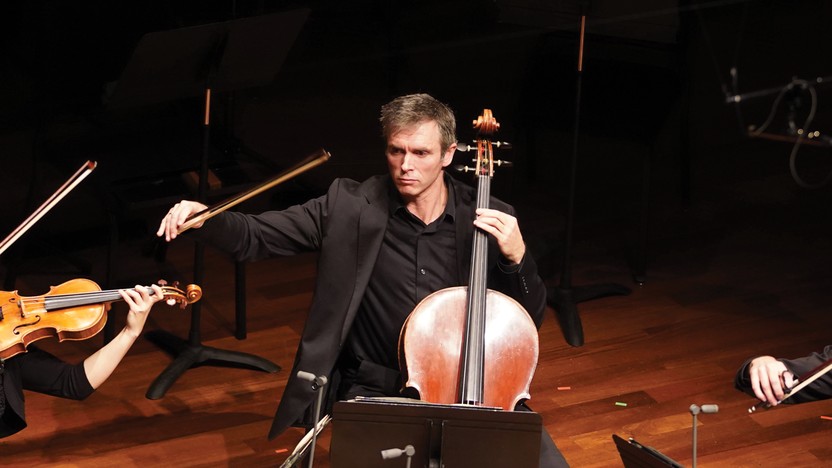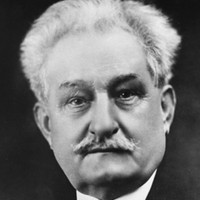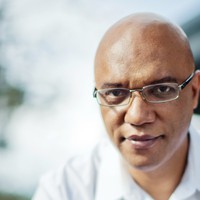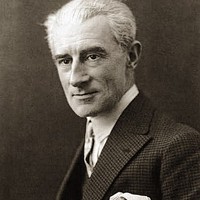EXPRESS CONCERT: Janáček’s The Kreutzer Sonata



The London-born, American-based composer Anna Clyne rocketed into the international limelight in 2009, when the Chicago Symphony Orchestra named her as a composer-in-residence. She has been in constant demand ever since as a collaborator with the world’s top orchestras, including a current stint as composer-in-residence with the BBC Philharmonic, and a previous tenure with the Scottish Chamber Orchestra, which commissioned and premiered Overflow. Clyne wrote the following program note.
Overflow is a wind dectet inspired by Emily Dickinson’s poem, “By The Sea,” in which we experience the ocean’s power over the poet’s imagination — alluring, unsettling and dangerous. The line from which this piece takes its title, “Would overflow with Pearl,” reminded me of an image from Rumi’s poem “Where Everything is Music,” whereby the tiniest motion of a pearl on the ocean floor can cause great waves above. The opening sonority of Overflow also draws inspiration from Rumi’s words of a “slow and powerful root that we can’t see,” with a low B-flat, the lowest pitch of the ensemble, emerging from silence.
Aaron Grad ©2025

Leoš Janáček, already world famous for his operas written in the Czech language, wrote the first of his two string quartets at the age of 69, in the midst of a long and flirtatious correspondence with a much younger woman, even though both were married. He wrote to her that, in shaping his quartet, “I was imagining a poor woman, tormented and run down, just like the one the Russian writer Tolstoy describes in his Kreutzer Sonata.” Janáček was referring to the novella Leo Tolstoy titled after the Ludwig van Beethoven Violin Sonata No. 9, nicknamed “Kreutzer” for its dedicatee. In Tolstoy’s story, the climax is a scene in which a seething husband is driven to murder after watching his wife, a pianist, perform that sonata with her suspected lover, a violinist.
After an Adagio introduction, every portion of the quartet bears the tempo heading Con moto (“with movement”), an indication of the persistent forward drive in Janáček’s fragmented, energized approach to manipulating motives. A stepwise theme in the third movement makes an oblique reference to one of the melodies from Beethoven’s sonata, and a solo at the start of the fourth movement is meant to be played “like in tears,” hinting at the tragic outcome of Tolstoy’s love triangle. SPCO cellist Richard Belcher created this version for string orchestra that balances soloistic intimacy with the lushness of full sections.
Aaron Grad ©2025

Each Moment Is a New Discovery was co-commissioned by Orpheus Chamber Orchestra and The Saint Paul Chamber Orchestra with generous support from Carl Voss and Linda Hoeschler in honor of Daniel Avchen.
Composer and pianist Billy Childs got his professional start as a sideman for jazz giants including Freddie Hubbard and J.J. Johnson, while simultaneously earning a B.M. in composition from USC, under the tutelage of Robert Linn and Morton Lauridsen. He began recording his own compositions for jazz combos starting in the late 1980s, and soon commissions followed from classical ensembles, including several works for the Los Angeles Philharmonic. Childs has continued to straddle both musical worlds, winning a total of six Grammy awards for his compositions, jazz performances, and arrangements.
For this co-commission from Orpheus and The Saint Paul Chamber Orchestra, Childs responded to events that were weighing heavily on him — including illnesses and deaths among his friends, and the overall state of the country — with a work that he saw as a way of his “psyche rebelling against all of this stuff,” he explained in an interview. “I started thinking about the fact that with each moment, you don’t know what is going to happen. I wanted to give the sense that there are things still unfolding in your life that could be positive.”
In Each Moment Is a New Discovery, Childs leans into some of the formal structures of European classical music, and his transparent orchestration for the small ensemble of soloists recalls Johann Sebastian Bach’s Brandenburg Concertos and their more recent offspring from neoclassical composers like Igor Stravinsky and Paul Hindemith. Harmonically, Childs ruminates on so-called perfect intervals (i.e. seconds, fourths and fifths in musical terms) that create a “sound of possibilities” in the ways they avoid committing to either major or minor sonorities.
Childs recalled being very young and listening to the fugues that his mother would play, and thinking that it sounded like a game of “follow the leader.” That early love of counterpoint comes through in Each Moment, where voices imitate each other in overt and subtle ways. At the same time that he honors the classical tradition, Childs creates propulsive rhythmic patterns and asymmetrical grooves steeped in his own lifelong approach to music, where drums are the “heartbeat” at the center of everything. (Even when listening to Bach or any other classical music, Childs says, “I definitely hear what a drum set would be doing.”) He observed that for “people who play with a European classical sensibility, the time seems to be coming from a different place than in a jazz group. In classical ensembles, the time is usually an agreement within the ensemble; it’s malleable. In jazz, the time is more often than not external; it’s outside of yourself. It’s what the clock or the count-off says it is. In jazz, we talk about ‘swinging,’ and that doesn’t necessarily have to mean the dance-like swing you would hear from Paul Chambers and Philly Joe Jones [the bassist and drummer on classic albums by Miles Davis and others]. To me, ‘swinging’ means rhythmic acuity that feels organic.”
Aaron Grad ©2025

Maurice Ravel, meticulous yet hot-headed, took after both of his parents, a Swiss engineer and a Basque peasant. Even though he was raised in Paris, Ravel was a perennial outsider who got himself expelled from the Paris Conservatory once as a piano student in 1895, and then again in 1900 after he returned as a composer and wouldn’t follow the rules for writing a proper fugue. His five consecutive rejections in the prestigious Rome Prize competition became something of a public scandal, and even his own teacher, Gabriel Fauré, piled on when he labeled Ravel’s final submission “a failure.” The submitted piece was none other than the String Quartet in F Major, which has long since taken its rightful place as a cornerstone of the quartet repertoire.
One musician who recognized the power of Ravel’s quartet was Claude Debussy, who wrote to his younger colleague, “In the name of the gods of music and in my own, do not touch a single note you have written in your Quartet.” Ravel’s quartet in fact shares many traits with Debussy’s own string quartet from a decade earlier, in the way they both develop thematic connections that link the separate movements.
In the famous second movement of Ravel’s quartet, the main melody is a close kin of the first movement’s opening theme. Here the material takes on a Spanish flair with strummed textures and moody scales related to Flamenco music, showing off Ravel’s deep connection to his mother’s roots. This fiery material gets refracted through Ravel’s fastidious sense of form, taking on the quality that led Stravinsky to offer a famously backhanded compliment, calling Ravel “the most perfect of Swiss watchmakers.” The Orpheus Chamber Orchestra commissioned this ensemble arrangement by Michi Wiancko.
Aaron Grad ©2025
Each Moment Is a New Discovery was co-commissioned by Orpheus Chamber Orchestra and The Saint Paul Chamber Orchestra with generous support from Carl Voss and Linda Hoeschler in honor of Daniel Avchen.
Our Express Concerts are 60-75 minutes of music without intermission. Learn more at thespco.org/express.
Get driving directions and find nearby parking.
Find dining options close to the venue.
View seating charts to find out where you'll be seating.
Get driving directions and find nearby parking.
Find dining options close to the venue.
View seating charts to find out where you'll be seating.
